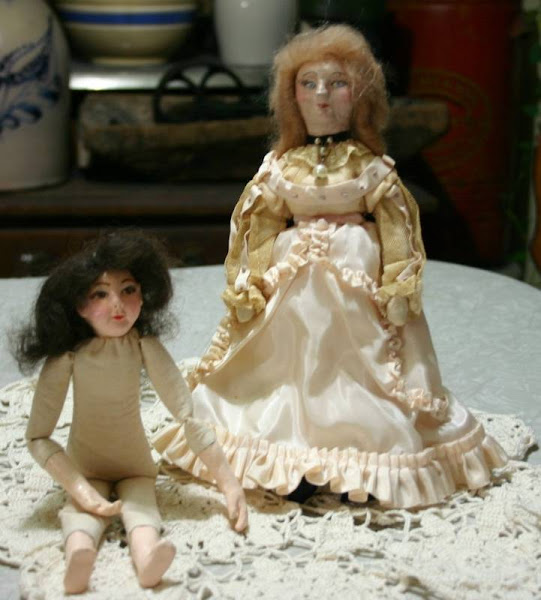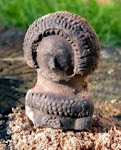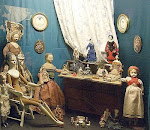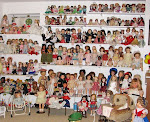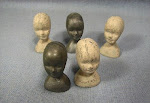 |
| Theriault's.com |
From Theriault's, below:
Item Description: Translate description
69" (175 cm.) Carved wooden head with layered gofun finish giving a flawlessly smooth whitened complexion, enamel inset eyes glancing beneath highly defined eyelids, incised upper eyeliner, painted lower lashes, artistically brush-stroked and feathered brows, accented nostrils, closed mouth with hint of gentle smile, individually inset black human hair, wrapped form body with sculpted hands and feet having gofun finish, curled fingers in right hand for holding a fan. The head is designed to attach to constructed crevices on the neck/shoulders of the body, thus to be easily assembled and likely allowing the artist to work with closer attention to the head features. The doll is costumed in original multi-layered robes with symbolic designs, and has original slippers, fan, and very elaborate hair ornaments. Known as Iki-Ningyo or living doll, in reference to its life size, the history of the iki-ningyo traces back centuries in Japan, although its 19th century resurgence can be mostly credited to one man, Matsumoto Kisaburo, and the introduction of the doll in the Western world to the mid-19th century International Expositions which exhibited these life-size figures to the delight of Western-world visitors. Kisaburo had begun his lifework penniless, but by borrowing a few coins and purchasing small bits of silk and trim, he created exquisite hair ornaments that were eagerly sought, thus giving him the financial resources to begin the creation of iki-ningyo. Kisaburo pursued his lifework until 1891, creating a litany of stunning figures that ranged from exotic to everyday people, and in his wake followed a school of other iki-ningyo artists. By the 1920s it became a tradition for Japanese stores to commission iki-ningyo for display of luxury goods or as an attention piece in store windows, and the works of certain artists became in particular demand. It was such an iki-ningyo that was presented as a gift to Shirley Temple in 1935 on her trip to Honolulu. The artist is unknown, except for the mostly illegible markings that appear on the underside of the wooden head (see photo). With a bow toward the illustrious 19th century artist Kisaburo who began his work with the creation of hair ornaments, this iki-ningyo's beautiful hair is elaborately ornamented with such. Newspaper reports vary on the background of the gift, some stating that thousands of Japanese school children each gave a small coin to commission the doll. The accurate story is likely that reported in The Hawaii Hochi newspaper of August 13, 1935, "This elaborate gift was presented to Shirley at the Royal Hawaiian Hotel at noon today...at the request of the donors, Mr. and Mrs. Sadakicki Kawabate of Oahu", adding that the doll "represents the aloha which the entire Japanese community feels toward the charming little person". The iki-ningyo was prized by Shirley Temple throughout her life, preserved in a glass-sided wooden cabinet in her home.
This item is part of Love, Shirley Temple: Costumes, Dolls, Memorabilia
























































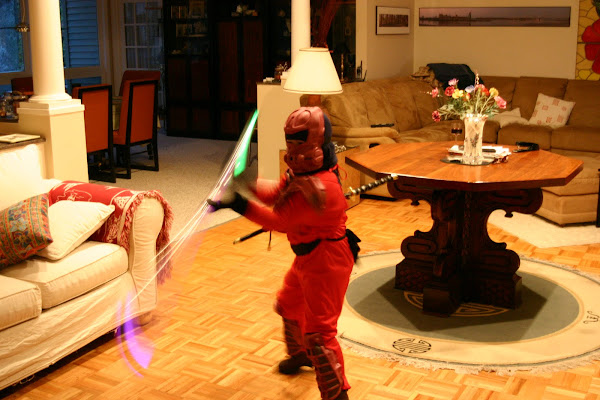

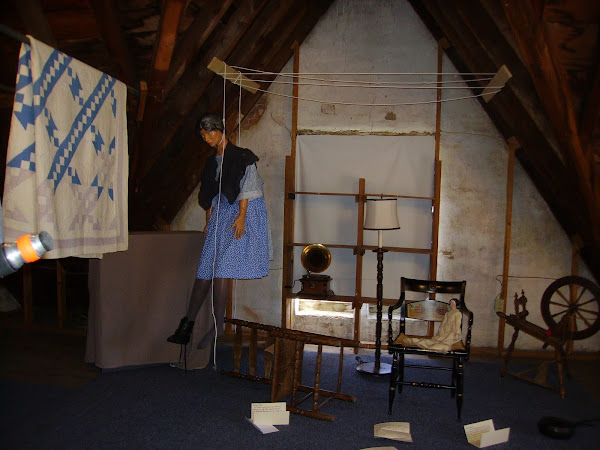
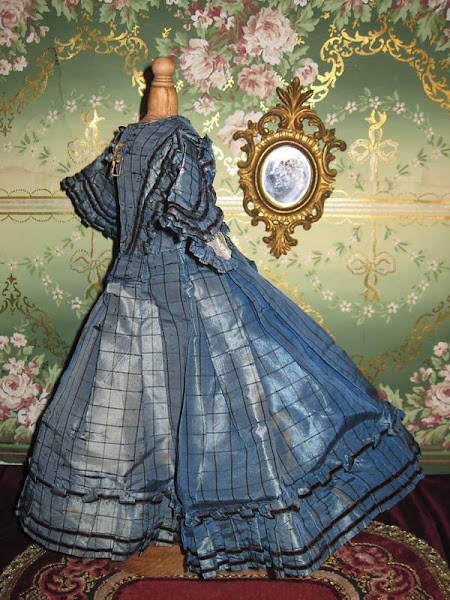wCWk~%24(KGrHqV,!h8Ew5GsnS3dBMUy3MzVPg~~_3.jpg)


